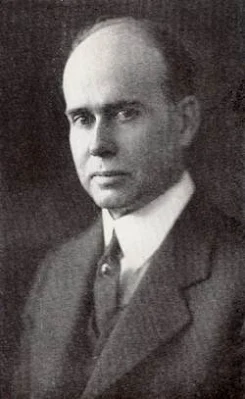A mind that found itself: an autobiography
 |
| Clifford Whittingham Beers |
Excerpt:
This story is derived from as human a document as ever existed; and, because of its uncommon nature, perhaps no one thing contributes so much to its value as its authenticity. It is an autobiography, and more: in part, it is a biography; for, in telling the story of my life, I must relate the history of another self — a self which was dominant from my twenty-fourth to my twenty-sixth year. During that period I was unlike what I had been, or what I have been since.
The biographical part of my autobiography might be called the history of a mental civil war, which I fought single-handed on a battlefield that lay within the compass of my skull. An Army of Unreason, composed of the cunning and treacherous thoughts of an unfair foe, attacked my bewildered consciousness with cruel persistency and would have de- stroyed me, had not a triumphant Reason finally interposed a superior strategy that saved me from my natural self. I am not telling the story of my life just to write a book. I tell it because it seems my plain duty to do so.
A marvellous escape from death and a miraculous return to health after an apparently fatal illness is enough to make a man ask himself: For what purpose was my life spared? That question I have asked myself, and this book is, in part.
This story is derived from as human a document as ever existed; and, because of its uncommon nature, perhaps no one thing contributes so much to its value as its authenticity. It is an autobiography, and more: in part, it is a biography; for, in telling the story of my life, I must relate the history of another self — a self which was dominant from my twenty-fourth to my twenty-sixth year.
During that period I was unlike what I had been, or what I have been since. The biographical part of my autobiography might be called the history of a mental civil war, which I fought single-handed on a battlefield that lay within the compass of my skull. An Army of Unreason, composed of the cunning and treacherous thoughts of an unfair foe, attacked my bewildered consciousness with cruel persistency and would have de- stroyed me, had not a triumphant Reason finally interposed a superior strategy that saved me from my natural self. I am not telling the story of my life just to write a book. I tell it because it seems my plain duty to do so.
A marvellous escape from death and a miraculous return to health after an apparently fatal illness is enough to make a man ask himself: For what purpose was my life spared? That question I have asked myself, and this book is, in part, an answer. Until someone tells just such a story as mine and teUs it sanely, needless abuse of helpless thousands will continue.
Great advances toward the intelligent and humane treatment of the insane have no doubt been made — advances so great that the majority of insane patients in this country are now treated with a consideration that amounts to kindness. But a helpless and irresponsible minority, numbering thousands, are still being subjected to abuse as brutal as any ever visited on insane persons during those centuries when the strong took pleasure in torturing the weak.
That insane person are still abused is suspected by the public at large, but direct and convincing proof of that fact is seldom presented. I am sure that the proof I now offer will ring true, and will contribute to the correction of many mistaken ideas regarding the insane and their treatment, and regarding insanity itself. In the discussion of the crude methods of treatment which now obtain, all abuses which fell under my observation will of necessity be laid bare.
A former victim of these methods, I feel at liberty to attack them; and the right to do so is doubly mine as I have a remedy to offer or at least a campaign to propose. If intelligently carried on, it will, I feel confident, largely atone for one of the blackest pages 'in history.
the book details :
Download 9.2 MB

